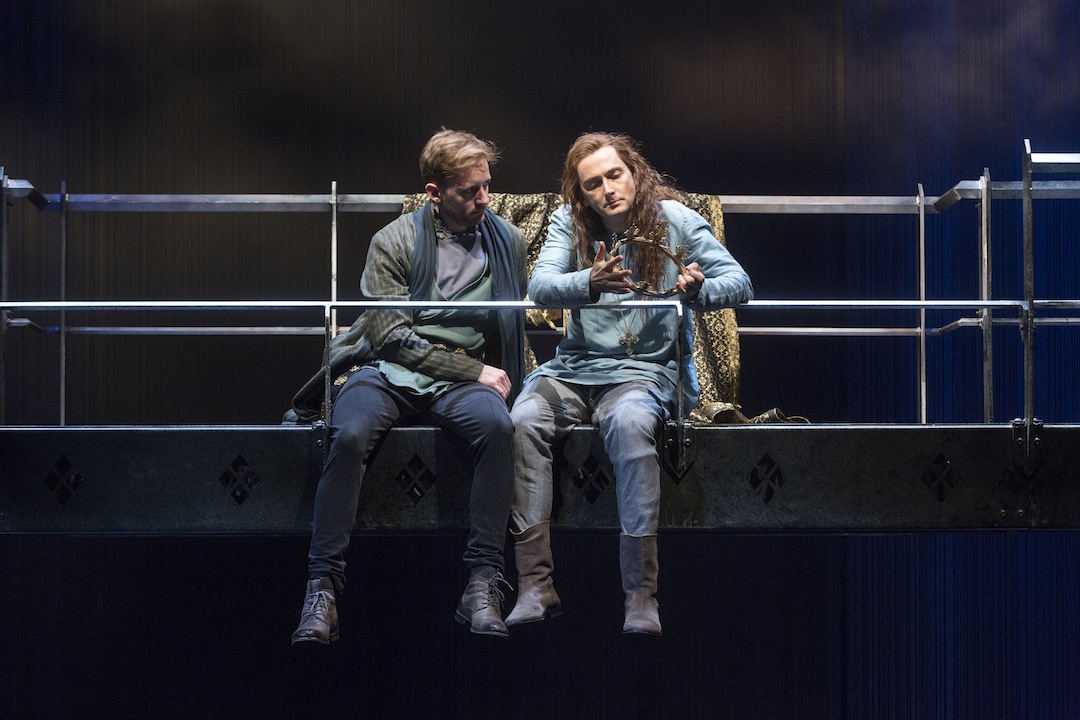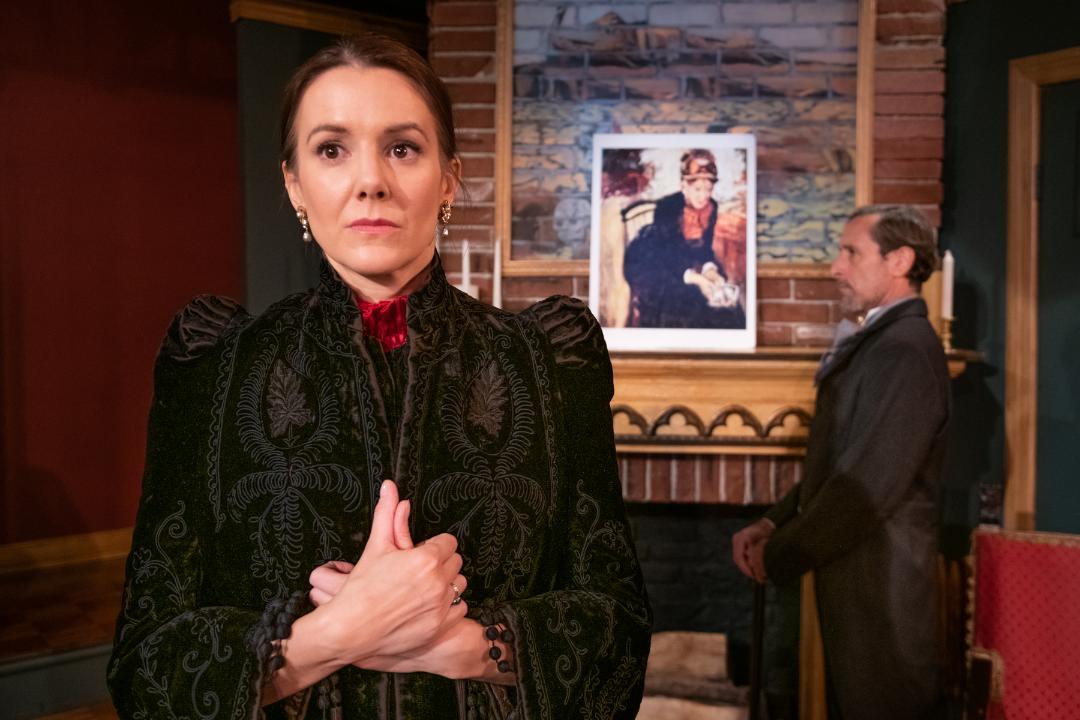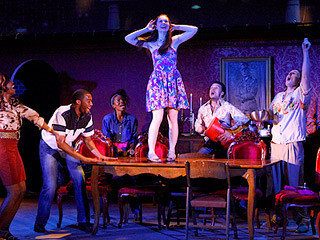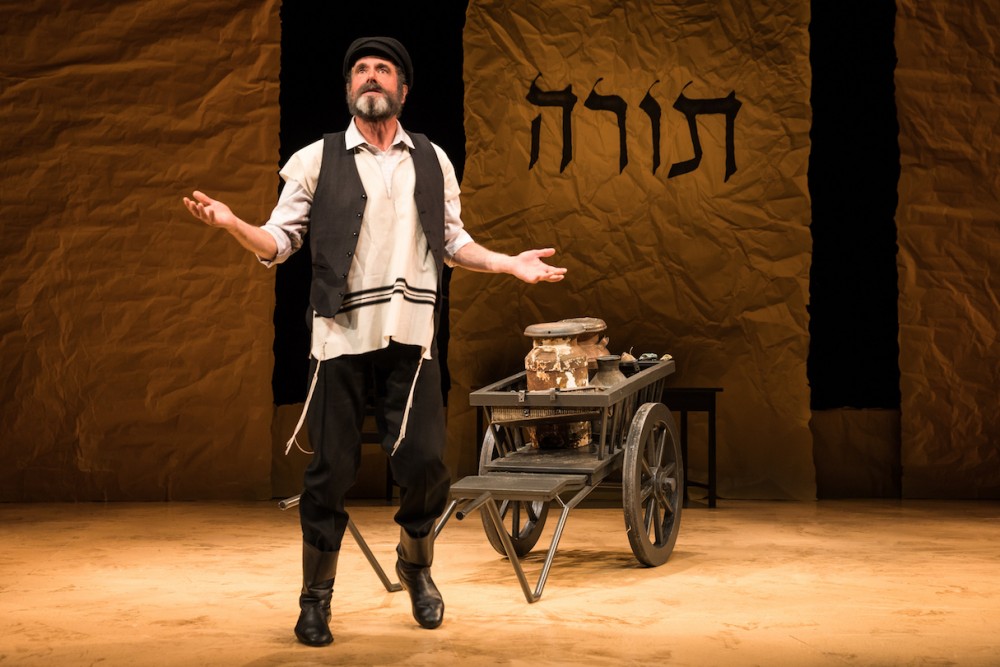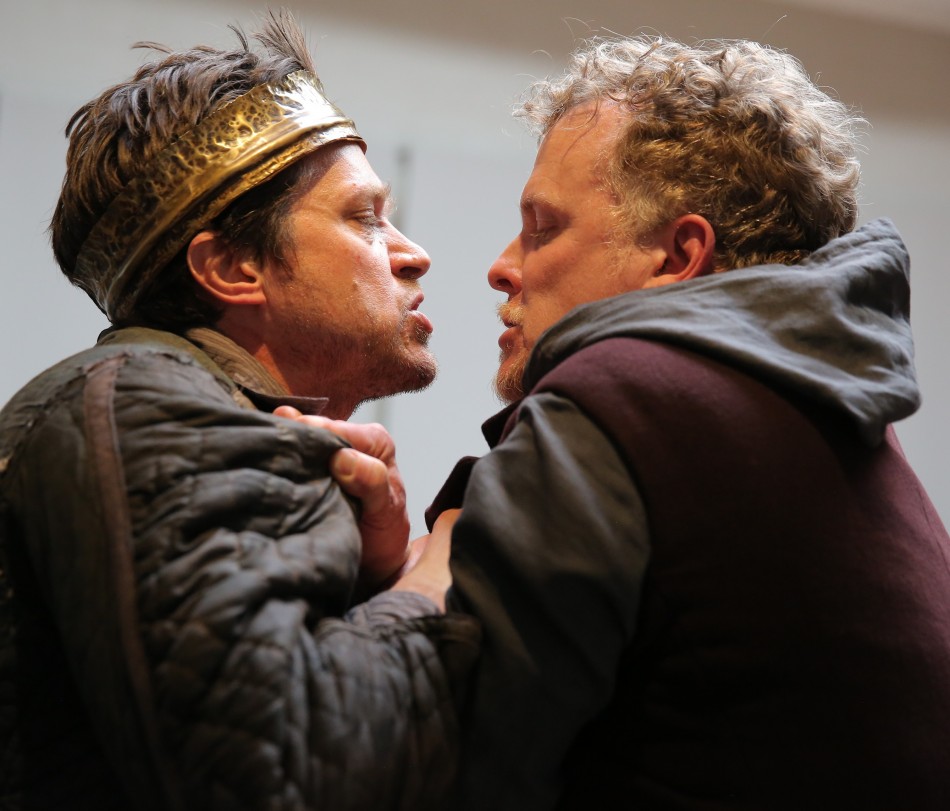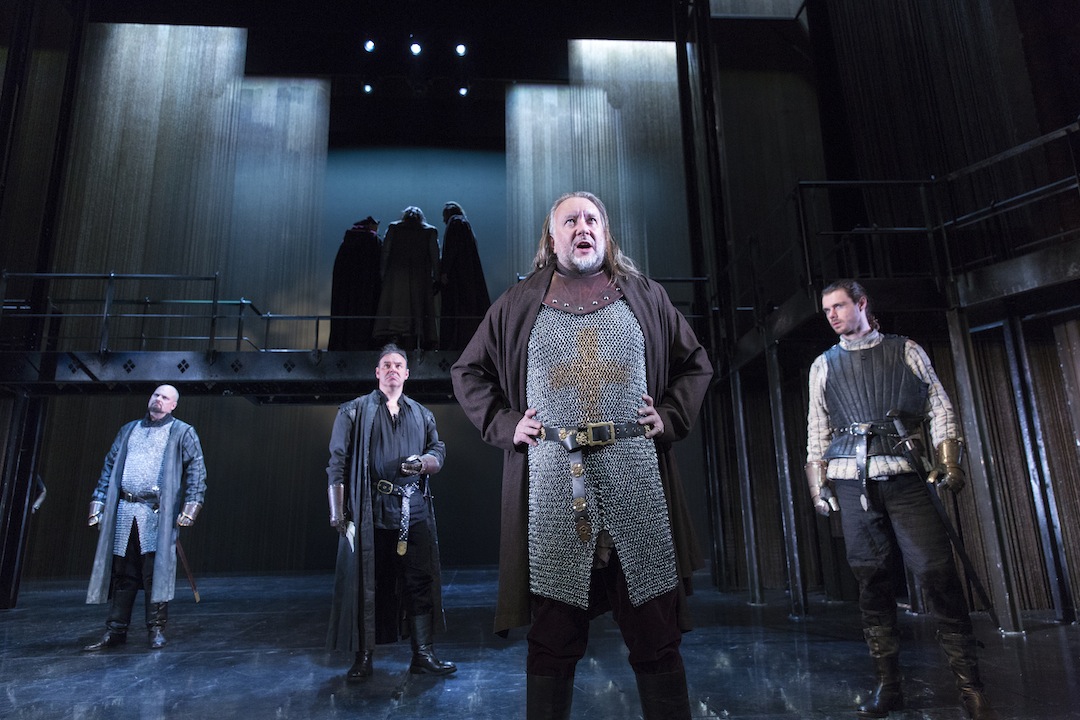

by JK Clarke
An incredible thing is happening this month at the Brooklyn Academy of Music (BAM). In conjunction with Ohio State University, BAM is presenting the Royal Shakespeare Company’s four productions of what’s come to be known as Shakespeare’s Great Cycle of Kings (click through for reviews): Richard II; Henry IV, Part I; Henry IV, Part II; and Henry V. It’s an exceptionally rare opportunity to see all four plays presented in repertory, especially by so esteemed a company in such outstanding productions.
Shakespeare’s Histories notoriously get a bad rap. Reputed to be dry, overly political and full of long-winded speeches, the plays are usually the domain of only the most ardent aficionados. But calling them dull is an unfair and misguided assessment. While it may be true that plays like King John and Henry VIII can give watching grass grow a run for its money, what’s come to be known as the Cycle of Kings—also known as the Henriad—is a scintillating episodic. The series starts with Richard II (son of Edward, The Black Prince, who was known for military triumphs at the Battles of Poitiers and Crécy during the 100 Years War), who ascended the throne at the tender age of 10 years and was considered a capricious, tyrannical and ineffective leader. By the end of this play he is deposed and Henry IV (Harry Bolingbroke, Duke of Hereford) takes the throne.
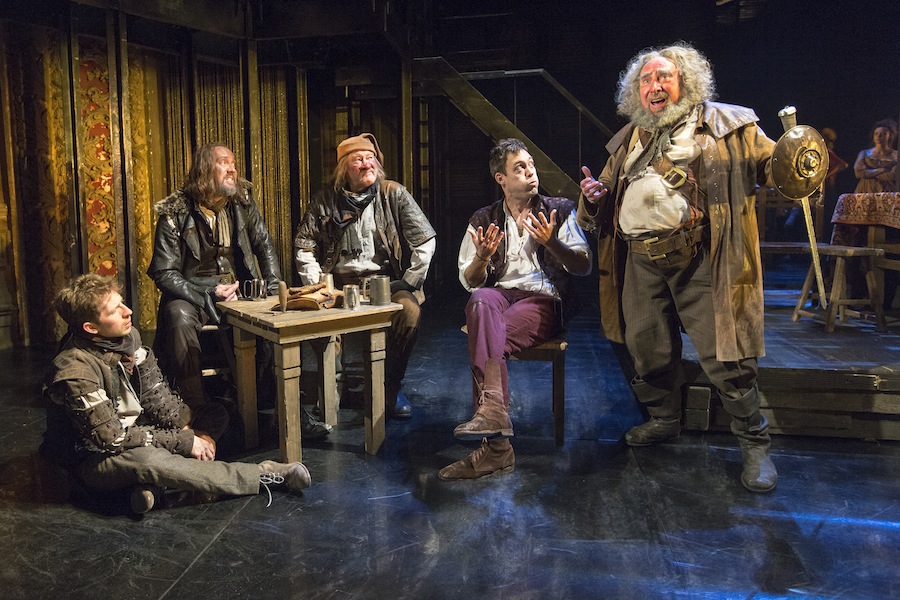

The next play in the Cycle, logically then, is Henry IV, Part I, in which the newly crowned King Henry IV tries to establish his reign, but is forced to confront rebellion. Meanwhile, his son, Prince Hal, has gained a reputation as a n’er do well and partier, who hangs around in the taverns of Eastcheap with Sir John Falstaff and his band of thieves. But Hal steps up as rebellion mounts and he leads a band of soldiers into battle, confronting and defeating the King’s chief rival, Harry Percy aka “Hotspur” whose nickname matches his temperament. In the next play, Henry IV, Part II, Prince Hal continues to mature and finally separates completely from his rogue patriots, further proving he is suitable to ascend the throne, as his father ages and ultimately dies. Finally, in Henry V, Prince Hal becomes King and decides to lay claim to ancestral lands in France. Mocked by the French court for his youthful folly, King Henry proves his mettle not only as a great warrior, but as a leader of men, uniting the kingdoms of France and England and marrying the French princess.
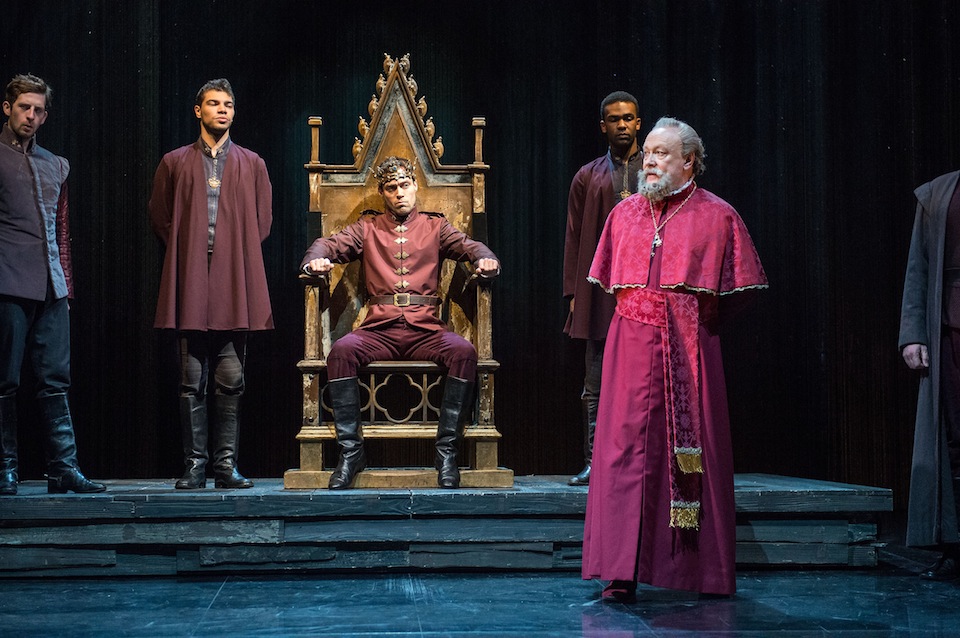

Complete and detailed reviews of each of the plays in the Great Cycle of Kings will be posted here at Theater Pizzazz over the next couple of days. But it can be said about each of the plays that under Gregory Doran’s direction they are not only outstanding, but will go down as one of the great productions of the Henriad of all time. Superb acting (most notably David Tennant as Richard II and the great Antony Sher as Sir John Falstaff), elegant, classical costuming (Stephanie Arditti), set (Stephen Brimson Lewis), lighting (Tim Mitchell) and sound design (Martin Slavin) make this Great Cycle of Kings a memorable, enriching and important production. See what you can. Sadly, much of the remaining, relatively short run is sold out. But it’s worth trying. Hopefully the series, which was featured on theatrical re-broadcast during its London run, will one day be available on video.
Shakespeare’s Great Cycle of Kings (Four Plays). Through May 1 at the Brooklyn Academy of Music’s Harvey Theater (651 Fulton Street, Brooklyn). www.bam.org
Photos: Stephanie Berger
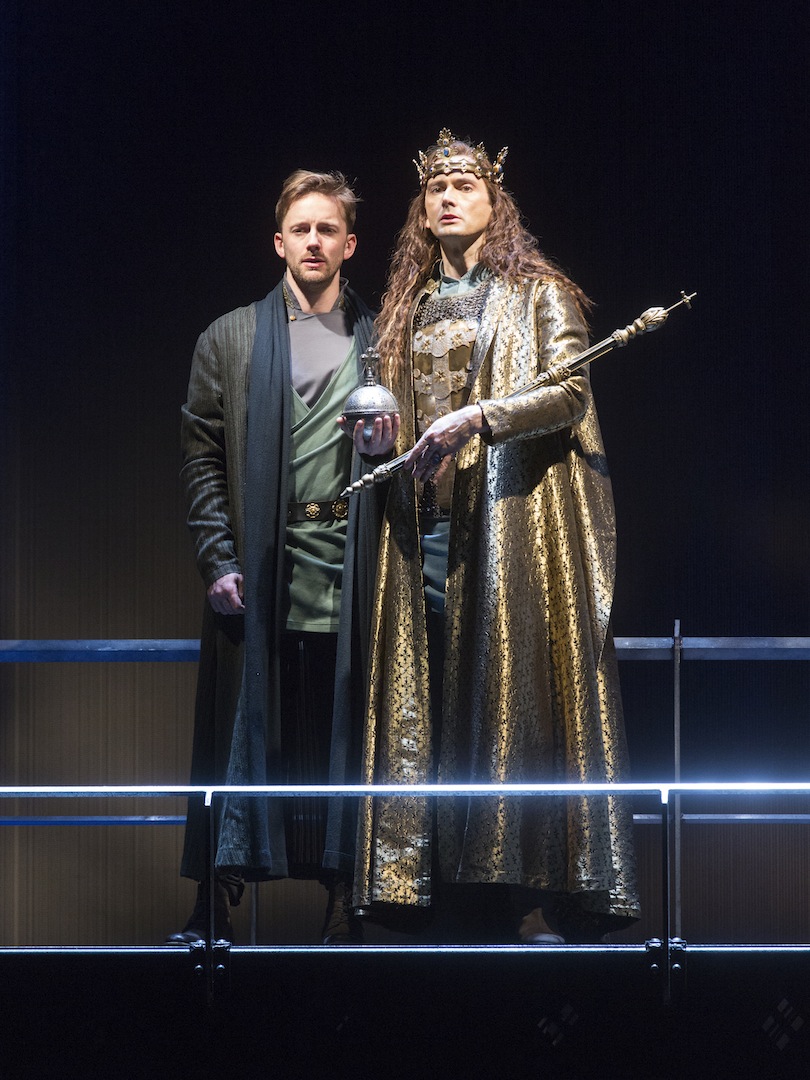

Photo: David Tennant as Richard II


